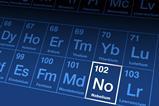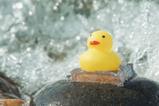Challenge your learners and give them new experiences, while you shape future chemists and develop your skills
Participating in the UK Chemistry Olympiad offers a variety of benefits, ranging from exploring fascinating chemistry beyond the post-16 curriculums to being able to meet – and bond with – like-minded people, according to members of the UK Chemistry Olympiad working group.

The tools to challenge
‘The Olympiad gives teachers the opportunity to go beyond the prescribed curriculum of the exam syllabus,’ says Helen Alonzi, head of science and chemistry at St Bartholomew’s School in Newbury. Penny Robotham, vice principal at the National Mathematics and Science College in Coventry, echoes this sentiment, saying, ‘It’s one of the very few competitions that genuinely enables the students to be stretched and challenged in chemistry.’
The competition is definitely an opportunity to challenge learners, says chemistry lecturer at University College London, JL Kiappes. ‘We design some of the questions to be learning resources, to help challenge those students that are really excelling already,’ he adds.
Showcasing chemistry’s relevance
The competition also enables you to highlight to your learners chemistry’s importance in their everyday lives. ‘We want the students to be able to see relevant, real-world chemistry,’ says Penny. ‘We [also] try as hard as we can to make the Round one questions topical,’ adds Helen.
It definitely looks impressive on UCAS applications if students can say they got a certificate
Examples of recent Round one questions include exploring the synthesis of drugs, calculations of equilibriums in lateral flow tests and discovering the energy consumption benefits of moving from E5 to E10 petrol. ‘We try and pick things that relate to students and our hope is that they’d read a question and think: do you know what, that’s really interesting,’ Penny says.
Additionally, exploring the Olympiad resources can help teachers overcome their learners’ negative perceptions of chemistry, says Ben Pilgrim, associate professor of chemistry at the University of Nottingham. Media coverage of chemical spills and explosions can leave students ‘thinking that chemistry is dangerous rather than being hugely beneficial to all aspects of life, and countering this misconception is one of the things we try to do in our Olympiad questions’, he adds.
Everything you need to prepare your students
You can find past papers and other resources on the Royal Society of Chemistry Education website to help you prepare your learners for the competition.
Shaping futures
Exposing your learners to chemistry’s uses can also help them see a future for themselves in the field. ‘My hope is that students see some of these questions and they’re encouraged to think about studying chemistry at university, which maybe they wouldn’t have done before,’ says Ben, who won a bronze medal for the UK in the 2005 International Chemistry Olympiad.
Getting to meet people from many other countries was a really life-changing experience for me
Anamaria Leonescu, a chemistry PhD student at University College London who won a silver medal for Romania in the 2017 International Chemistry Olympiad, says that participating in the competition was a massive factor in her decision to study chemistry at university. ‘If I hadn’t done the Olympiad, I don’t think I would have necessarily chosen chemistry,’ she says.
Participating in the Chemistry Olympiad can help smooth your learners’ paths to university. ‘There’s no doubt it definitely looks impressive on UCAS applications if students can say they got a certificate,’ says Helen. ‘But even if they haven’t got a certificate, just being able to talk about the competition in applications or interviews is helpful.’
Bonding potential
Taking part in the Olympiad is also fun for your students, especially those that make it to Round two, which involves a weekend training camp, and beyond. A key benefit is being able to spend time with other secondary school students with similar interests.
‘It’s a big opportunity for students to connect with other people who share their academic interest both in their school and beyond their school,’ says JL, who won a silver medal for the USA in the 2004 International Chemistry Olympiad. ‘Getting to meet people from many other countries was a really life-changing experience for me,’ he says. And those meetings can blossom into long-lived friendships. ‘I am still really good friends with some people that I met through the Olympiad,’ says Anamaria.
Everything you need to prepare your students
You can find past papers and other resources on the Royal Society of Chemistry Education website (rsc.li/4dNDsN6) to help you prepare your learners for the competition.
Join Teach Chemistry
The UK Chemistry Olympiad is open to all Teach Chemistry members. If you’re not already signed up, join for free today.

Getting the most out of the UK Chemistry Olympiad

It’s the competition with something for every learner and teacher. Discover the benefits of participation here
- 1
- 2
 Currently
reading
Currently
reading
What you and your students will gain from the Olympiad
- 4
- 5
- 6
- 7


























No comments yet